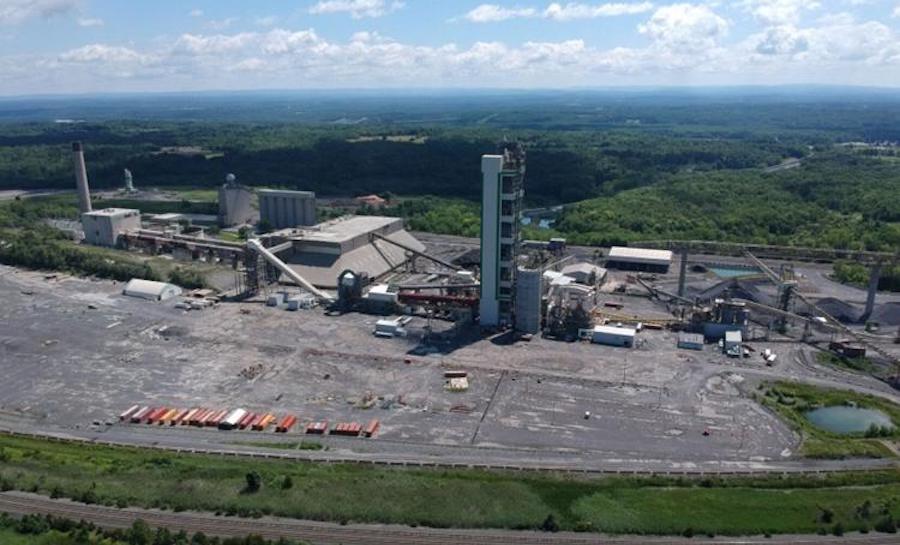EEOC Suit Alleges Site Managers Bullied Black Workers on NY Project

Bullying, threats and racial slurs detail alleged “hostile” working conditions for black employees at a now complete cement plant modernization project near Albany, N.Y., in a lawsuit filed June 2 by the U.S. Equal Employment Opportunity Commission against CCC Group Inc., a San Antonio, Texas-based general contractor.
On behalf of a former CCC Group employee, the EEOC complaint filed in U.S. district court contends that a company foreman repeatedly used racial epithets and symbols against the black craft workers and subjected them to other forms of racial harassment at the estimated $300-million multiyear plant upgrade that was finished in 2017.
The complaint also alleges that white supervisors and coworkers often commented that black workers were better suited for menial labor that required less skill and intelligence.
EEOC says the conduct violates Title VII of the Civil Rights Act and exemplifies “unlawful employment practices.”
Project contractor CCC Group denies the allegations made in the complaint and says its management was not made aware of any incidents until after the project was completed. The complaint does not name the project owner, Switzerland-based building material producer LafargeHolcim Ltd.
“Nearly three years ago, the EEOC notified us that one former employee claimed that inappropriate comments had been made to him at a Ravena, New York, construction site in 2016,” said CCC Group President and CEO Joe A. Garza in a statement provided to ENR. “That complaint was never reported to company management or human resources during the project and was first reported to the EEOC by the employee in 2017, long after the project was complete.”
Employer Could Not Substantiate Claims
After an internal investigation, Garza says the company could not substantiate any of the alleged comments and received no additional information from EEOC to help it proceed further.
“Throughout the EEOC’s nearly three year-long investigation, CCC Group repeatedly asked [it] to share any additional information it might have so that we could investigate further and take appropriate action if warranted,” Garza said. “Despite the EEOC’s explicit purpose, it bluntly responded to us that it had ‘no obligation to share information gathered during its investigation.’”
The lawsuit seeks a permanent injunction against CCC Group and new policies and practices at the company to protect current and future employees from hostile working conditions. The lawsuit also requests punitive damages for black workers.
“As a 100% employee-owned company with a diverse workforce, CCC Group has no tolerance for racial harassment, not only because it is prohibited by policy but also because it is inconsistent with our values and culture,” said Garza. “We first learned of the additional allegations that were said to have previously taken place at that jobsite when EEOC’s complaint was filed on June 2, 2020."
Garza added, "We take all such allegations very seriously and continue to thoroughly investigate these claims. Regardless, CCC Group will continue its commitment to ensure that any such conduct is not tolerated or allowed to occur in our workplaces. CCC Group will defend itself fully and appropriately against the allegations made by EEOC.”
In gathering evidence to support cases, the EEOC interviews witnesses, and collects documents and other statements to support claims made. According to its complaint, efforts to reach a conciliation agreement between CCC Group and the agency prior to legal action were unsuccessful.
“We are prohibited by Title VII, the law this case is brought under, from discussing what occurred during conciliation,” says Nora Curtin, EEOC supervisory trial attorney. “Generally, EEOC would seek monetary relief for individuals harmed by the discrimination and prospective relief to ensure the discrimination does not recur. That could include things like policy changes, training, and reporting to the EEOC.”
EEOC: Stronger Commitment
Per EEOC policy, the results of such lawsuits are always made public to keep employees informed of their rights and help employers shape corrective policies.
“The EEOC litigates in the public interest so it is vital for us to resolve our cases by publicly-filed consent decree executed by a court,” Curtin explains, adding that the decree "contains not only monetary relief for the victims, but also targeted injunctive relief to make sure no one else is subjected to discrimination."
The EEOC follows a Strategic Enforcement Plan when it comes to prioritizing which cases have merit.
Curtin notes that about one-third of all charges EEOC receives are based on race, adding that the agency recently issued a resolution "condemning the violence against black persons in this country and expressing its continued commitment to address institutionalized racism, advance justice, and foster opportunity in the workplace.”
She says it is too early to tell whether Black Lives Matter protests to address racial inequality have resulted in a more recent spike of discrimination cases,




